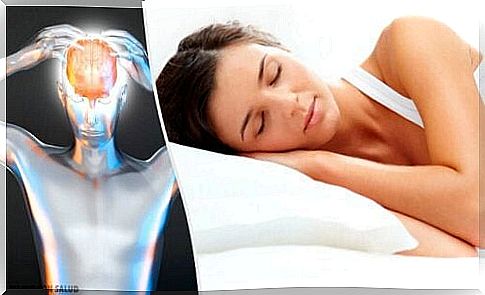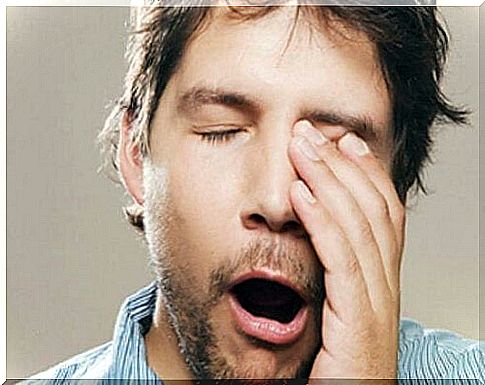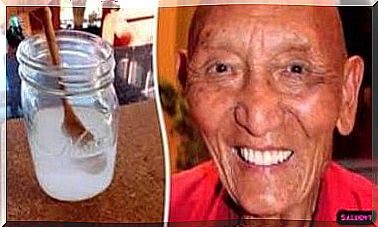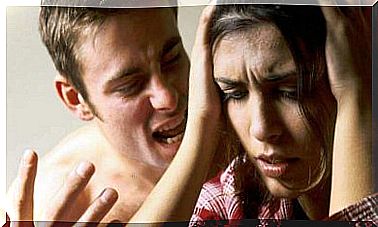Recommended Sleep Needs By Age

It is now known that our sleep habits change largely with each stage of life. For this reason, it is good to know what is the recommended need for sleep according to your own age, as both the body’s organic needs and our lifestyle change over time.
It is very important to try to sleep according to what the recommended need for sleep is in each age group, as insufficient sleep can lead to problems. In addition, keep in mind that sleeping too much is not recommended. Sleep is a fundamental process for the proper functioning of the whole body, but especially the brain.
The recommended need for sleep that every person should strive to meet depends on many factors. It is true that for each age group, experts recommend a certain amount of sleep, but this is only a general indicator. In some cases, there may be differences in this amount of sleep, depending on each individual’s own circumstances and state of health.
Why is it so important to get enough sleep?
The recommended sleep requirement by age is not an exact figure that would be so easy to determine. In fact, it is a figure that is quite challenging to measure accurately. This is because, for example, some young adults can only sleep for five hours and this is what they think is necessary, while the body of others of the same age requires at least nine hours of night sleep.
Rather, the knowledge of whether we are sleeping enough depends on the signs that we are not getting enough rest. When a person feels sleepy or irritated all day, this usually means that he or she is not resting properly.
Similarly, in cases where a person wakes up in the morning but falls asleep again after a few minutes, he or she is unlikely to have had enough rest during the night. A very reliable test to determine this value is therefore to sleep for 15 days without any restrictions; this test can be performed, for example, during a holiday. If at the end of this test phase, the person does not have sleep disorders and sleep schedules are regular, the person will get enough rest.

Recommended sleep requirement according to age
As we have already stated, adequate amount of sleep varies with age. The National Sleep Foundation (NSF) has provided a list of minimum and maximum hours of adequate sleep for each age group. This information is based on scientific studies carried out on the subject in recent years.
Based on this report, the recommended sleep requirement for each age group is as follows:
- Newborns (0-3 months): 14-17 hours a day.
- Babies (4-11 months): 12-15 hours a day.
- Young children (1-2 years old) : 11-14 hours a day.
- Toddlers (3-5 years old): 10-13 hours a day.
- Primary school children (6-13 years): 9-11 hours a day.
- Adolescents (14-17 years): 8-10 hours a day.
- Young adults (18-25 years): 7-9 hours a day.
- Adults and middle-aged (26-64 years): 7-9 hours a day.
- Adults and the elderly (65 years or older): 7-8 hours a day.
Why does age affect the amount of recommended sleep need?

Babies need more sleep than adults because this is a necessary process for their proper physical and psychological development. During sleep, more growth hormone production occurs in children’s bodies, which in turn is a necessary function to modulate the normal growth of the child’s organs and the maturation of the nervous system.
In addition, unlike adults, babies and children live in a continuous learning process. Only through sleep are their brains able to organize and focus the information they receive during the day. As this growth and maturation gradually completes, the amount of sleep required also decreases.
During adolescence, on the other hand, there is a temporary imbalance in the young person’s biological circadian rhythm, or circadian rhythm. The circadian rhythm refers to the so-called internal biological clock, which tells a person when he should wake up and when he should sleep. This imbalance leads to the teenager tending to fall asleep later in the evening, and therefore they also have more difficulty getting out of bed early in the morning. In turn, as we age, we will need less and less sleep.
Hypothesis of a grandfather sleeping poorly
A study published in the Royal Society’s Proceedings of the Royal Society, produced by the British Academy of Sciences, has shown that one reason why sleep habits change with age may be evolutionary adaptation. This possibility is also known as the “hypothesis of a grandfather sleeping poorly”.
According to this hypothesis, one of the factors that helped our ancestors survive was that one of the members of the tribe remained awake during the night. Because the elderly of the tribe performed fewer activities during the day and there was no greater effort involved in guarding them, apparently they were responsible for performing this function.
In today’s primitive communities, it has been observed that older people go to bed much earlier and wake up at dawn. This sleep rhythm could be explained by a pattern of behavior inherited from our ancestors that complements the previous explanation of why sleep habits and need for sleep change with age.









